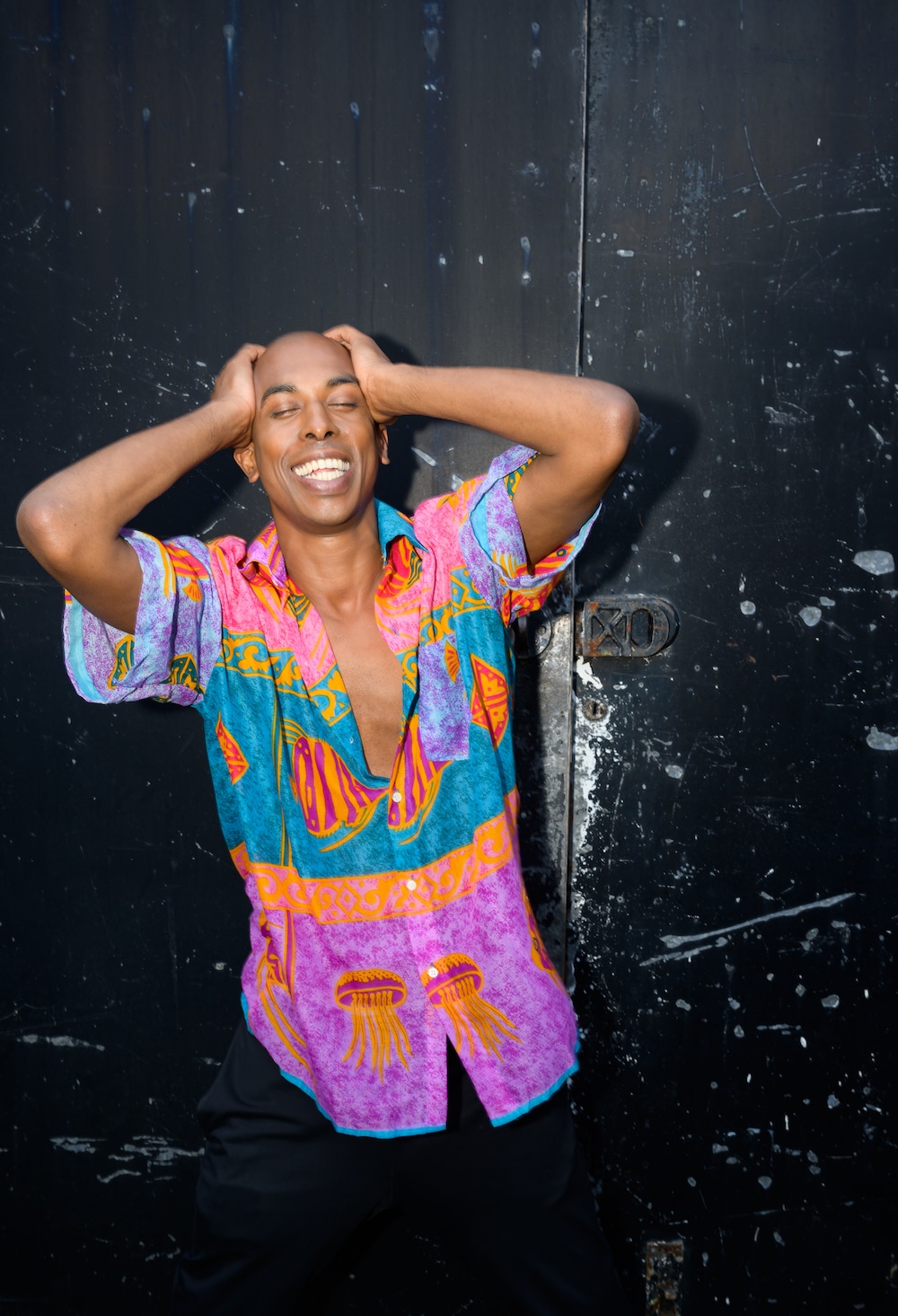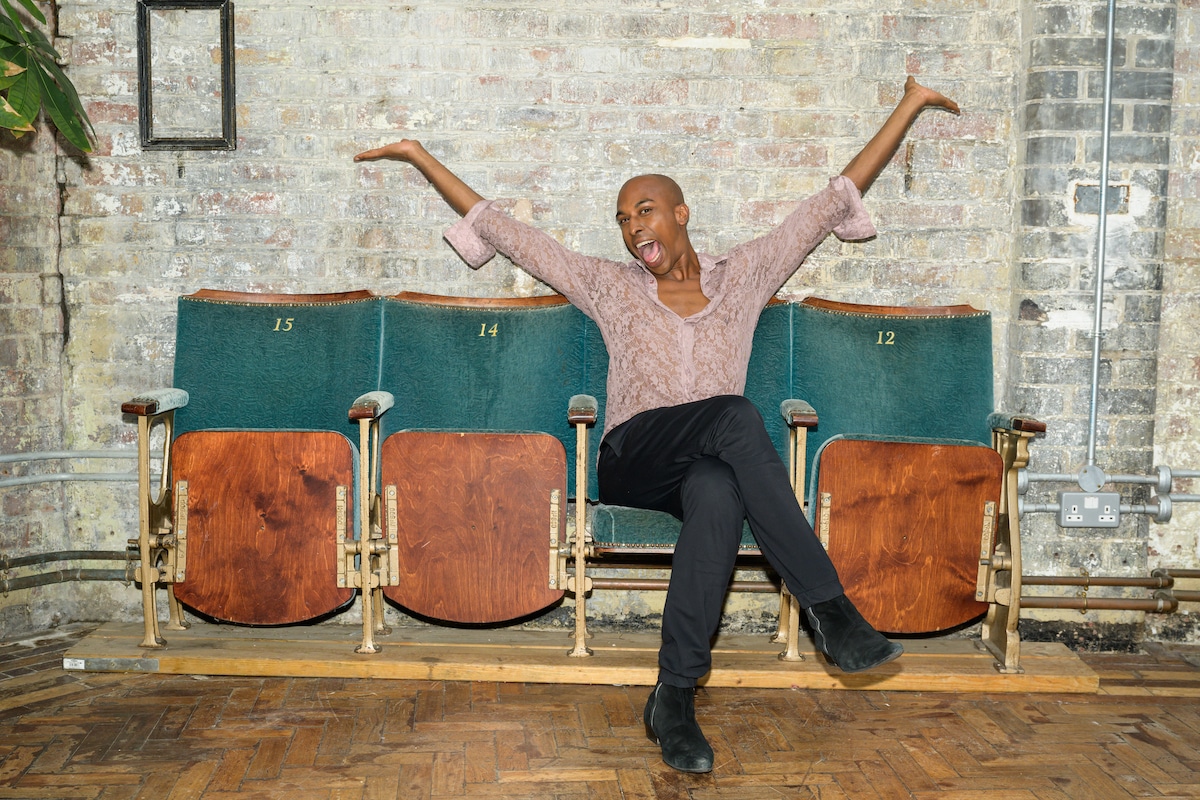Teacher wants to dispel harmful, toxic myths around people with HIV: ‘I’m living my best life’

Joshua Royal. (Find Your Four campaign/Provided)
To mark World AIDS Day, PinkNews spoke to Joshua Royal, a ballet dancer and teacher who wants to consign myths about HIV to the dustbin of history.
Joshua Royal was on a bus in 2015 when he received a phone call asking him to come in to his local sexual health clinic.
“I went in and they said: ‘We have something to tell you – you’re HIV positive.’ My whole body just sank, the walls caved in. I was like, it’s actually happened to me.”
It has been six years since Joshua was diagnosed with HIV – and in that time, he has learned to accept that he is living with the virus. Today, effective treatment means people with HIV can live long, healthy and happy lives – but stigma still persists.
Joshua has felt that stigma keenly, from both outside sources and from within himself. He says he wasn’t entirely surprised when he was diagnosed with HIV, describing himself as a “risk taker”. He was overcome with feelings of guilt and shame and blamed himself for being “promiscuous”.
In the years since, Joshua has felt that stigma coming from outside sources too. Dating and hook-up apps are a minefield, he says.
I’m so much more than just HIV. I have other goals and ambitions, and HIV is just a small part of me that I can handle.
“It’s one extreme to the next,” he says. “It’s either, ‘I want you to infect me with HIV, give me the virus,’ or it’s the opposite – it’s like, ‘block, block, block.’ They see you’re HIV positive, they don’t want to get to know you. Once they see that, they don’t want anything to do with you because they think you’re diseased.”
Those kinds of attitudes are hurtful because, as Joshua points out, his HIV status is just one part of him.
“I’m so much more than just HIV. I have other goals and ambitions, and HIV is just a small part of me that I can handle. It doesn’t effect my everyday life – I live a normal life, and I think after battling bipolar, it’s all about the mind. It hasn’t stopped me from being a dancer, it hasn’t stopped me from achieving my goals as a teacher. It’s really just about normalising the fact that it’s not a death sentence.”
Joshua Royal wants to show others with HIV that they’re ‘going to be OK’
HIV has been a manageable condition for more than two decades – and yet, myths persist about how it’s transmitted and what a diagnosis means. Joshua was nervous about telling friends and family for this reason.
“When I first found out I only told a small number of friends that I could really trust, and they were really there for me,” he says. “When I told my mum and dad, they were like, ‘Oh, we won’t be able to drink out of the same glass. If you get a cut we won’t be able to touch you, you’ll infect us.’ They thought they would have to wear gloves – they didn’t understand that undetectable equals untransmittable – they didn’t know that if you’re on treatment, you can’t pass the virus on.”
In the years since, Joshua’s parents have become some of his biggest supporters – but it was difficult for them to fully understand when he first told them about his status.
“Since coming out as HIV positive, I’ve made a family of people. Some people have come forward and said, ‘What you’re doing is great, but I’m just not there yet.’ It’s a personal journey and I think for some coming out so publicly isn’t doable. What I’m trying to achieve with my activism is to show that you’re going to be OK – you can still live a happy and healthy life. Just follow your dreams and there’s nothing to lose.”
Joshua is also eager to educate people about the realities of HIV – and to dispel some myths along the way. He makes the point that it’s not just queer men who can contract the virus, as people often wrongly assume. In fact, women made up almost 30 per cent of new diagnoses in the UK in 2019.
“It’s not just men, it’s not just gay people, it’s lesbians, trans people, straight people,” he says. Joshua sees education as the best way to combat misinformation about HIV, and he says the learning needs to start at an early age.
“I used to have this fear of what people would think of me, but now I tell everyone. Every school I go to, I say, ‘I’m HIV positive.’ I’m like, ‘What can I do? Can I come and talk to your students about sex education so I can inspire the next generation?’ I think education is the key to stigma. If you don’t educate yourself, then how are you going to understand the facts about HIV?”
People need to educate themselves ‘before judging others’
He is also eager to send a message of hope and positivity to people who have recently been diagnosed with HIV and who might be struggling with the news.
“You’re not alone,” he says. “There’s peer support out there so there are people to talk to. Find a community – you need to be able to talk about it openly. I think for me, the sense of community really helped me. Find a group of people that don’t just want to sleep with you, they actually want to support you. I think having that social circle of people that you can openly discuss the emotions you’re going through is helpful.
“To people who are not educated – educate yourself before judging others.”
Joshua is now an ambassador for the Find Your Four campaign, funded by Gilead Sciences in collaboration with the HIV community, which aims to empower people who are living with HIV by finding four things to focus on. He is proud to be a part of the campaign and to be helping others.
“You know what? I’m living my best life, and I’m really excited to be an ambassador for the Find Your Four campaign,” he says. “I’ve been able to fulfil my dreams, and HIV hasn’t been an issue for me.”



